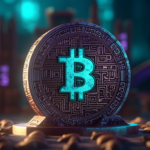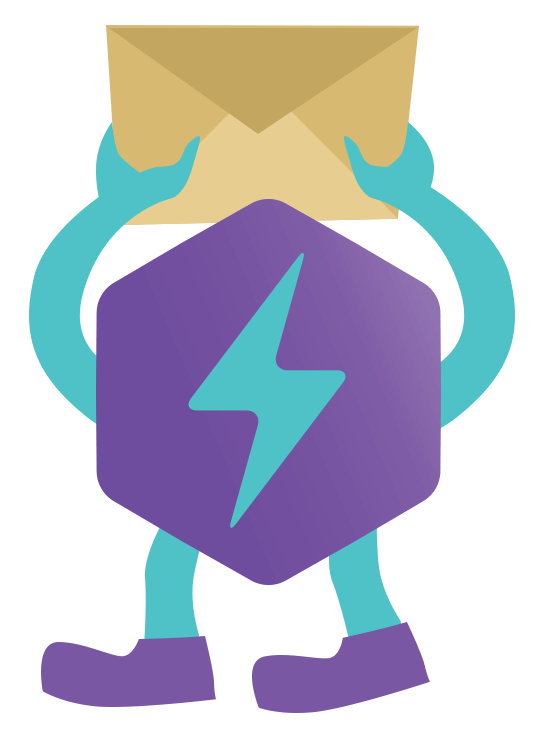Polygon, established by Christopher Grant and Jim Bankoff, has emerged as a significant player in the gaming and entertainment industry. It provides a robust platform known for covering various facets of digital culture, from video games to the rapidly evolving world of the metaverse. Polygon also leverages blockchain technology, which allows for advancements in gaming experiences, offering gamers and developers a decentralized and innovative environment to operate within.
The platform is distinguished not only by its comprehensive coverage of gaming news and reviews, but also for its integration with Web3 technologies. It provides an entry point for enthusiasts to explore gaming through the lens of cryptocurrency, tapping into the trend of tokenization and NFTs within the gaming sphere. Polygon Studios stands as a testament to the company’s commitment to fostering digital culture through partnering with large-scale NFT projects, thus aligning traditional gaming models with blockchain efficiencies.
Key Takeaways
- Polygon is a key media resource and platform within the gaming and entertainment industry.
- Its technology improves gaming experiences through decentralization and integration with Web3.
- The platform’s commitment to digital culture extends into areas like NFTs and the metaverse.
Top Games on Polygon
The gaming ecosystem on Polygon has flourished, with Elden Ring and God of War Ragnarok among the standout titles from mainstream platforms. However, within the realm of decentralized applications (dApps), the landscape is different, focusing on play-to-earn (P2E) models and blockchain integration.
One of the pioneering games in this space is Aavegotchi. It blends the nostalgia of 90s virtual pets with cutting-edge DeFi elements, offering a unique gaming experience. Known for its collectible ghost-like avatars that players can upgrade and care for, Aavegotchi has carved its niche in the gaming community.
The platform has also seen innovative uses in educational metaverse environments, with Bloktopia leading the way. Players can learn about cryptocurrency, NFTs, and Decentralized Finance (DeFi) through interactive experiences, all while navigating a virtual skyscraper filled with opportunities for engagement and revenue.
For those seeking more traditional gaming experiences enhanced with blockchain benefits, the top games on Polygon’s network in 2024 are trailblazers in merging entertainment with the P2E model, emphasized by CoinGape’s list of Top 10 Polygon (MATIC) Games in 2024. This new gaming paradigm is reshaping how players interact with digital worlds, ensuring that their time and effort are rewarded with more than just in-game achievements.
| Game | Description |
|---|---|
| Aavegotchi | DeFi, NFT integration with ’90s nostalgia gameplay |
| Bloktopia | Educational metaverse with real estate and P2E |
Polygon’s diversity in gaming proves that the platform is not only an infrastructure for developers, but also a thriving ground for a variety of gaming experiences.
Polygon’s Gaming Industry Technology
Polygon has firmly positioned itself in the gaming industry by leveraging blockchain technology to enhance gaming experiences. It enables scalability and interoperability with the Ethereum network, which are crucial for game developers looking for a platform to build high-performance games without compromising on security.
At the core of Polygon’s technology is the Polygon SDK, a modular and flexible framework that allows developers to create and connect Layer-2 infrastructure such as sidechains, optimistic rollups, and zk-rollups. These solutions help in achieving lower transaction fees and faster confirmation times, which are essential for a smooth gaming experience.
- Sidechains: Custom networks that operate alongside the main blockchain, allowing for customizable game mechanics.
- Optimistic Rollups: Transactions are recorded off-chain to reduce congestion and cost, with occasional on-chain data posting.
- zk-Rollups: Utilize zero-knowledge proofs to bundle transactions off-chain for validation, further enhancing speed and efficiency.
Polygon has also introduced Polygon Studios, supporting the creation of blockchain-based games. It serves as an ecosystem for developers, enabling them to leverage decentralized gaming experiences. This initiative has paved the way for play-to-earn models and the integration of non-fungible tokens (NFTs), which are transforming the gaming economic landscape.
Developers find Polygon’s network conducive to building immersive and interactive games, demonstrated by the diversity of titles that have emerged on the platform, ranging from strategy games to virtual worlds. Blockchain gaming is rapidly evolving and Polygon’s technology is at the forefront of this digital revolution, setting new trends and shaping the future of the gaming industry.
Key Features of Polygon for Web3 Games
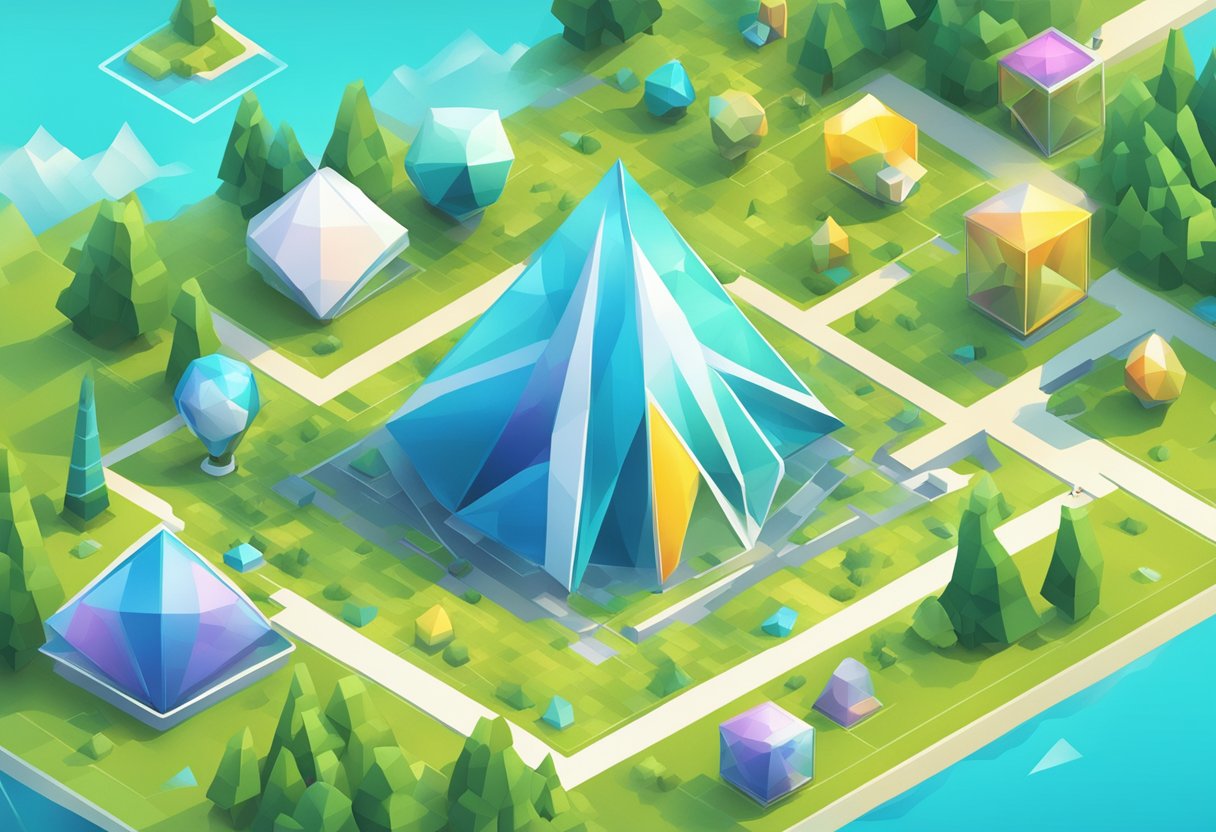
Polygon is acknowledged for its intrinsic capabilities that align seamlessly with the requirements of Web3 gaming. A key feature of Polygon in this domain is its Layer 2 scaling solution for Ethereum. This allows for enhanced scalability, ensuring that games can handle high transaction volumes with lower fees, which is critical as games often involve numerous small transactions.
Interoperability is another cornerstone of Polygon’s architecture, facilitated by its compatibility with the Ethereum Virtual Machine (EVM). Developers can build and deploy smart contracts with ease, leading to a rich ecosystem of interconnected applications and games.
Speed is a definitive advantage offered by Polygon; it achieves faster block confirmations, which is vital to maintaining fluidity in gameplay, thus ensuring a better user experience. The integration with Immutable portends the further growth and scaling of Web3 gaming.
| Feature | Description |
|---|---|
| Scalability | Deals with a high number of transactions at lower costs. |
| Interoperability | EVM compatibility enables seamless integration with existing Ethereum infrastructure. |
| Speed | Provides faster transactions, essential for real-time gaming. |
Polygon’s Gaming Platform Review
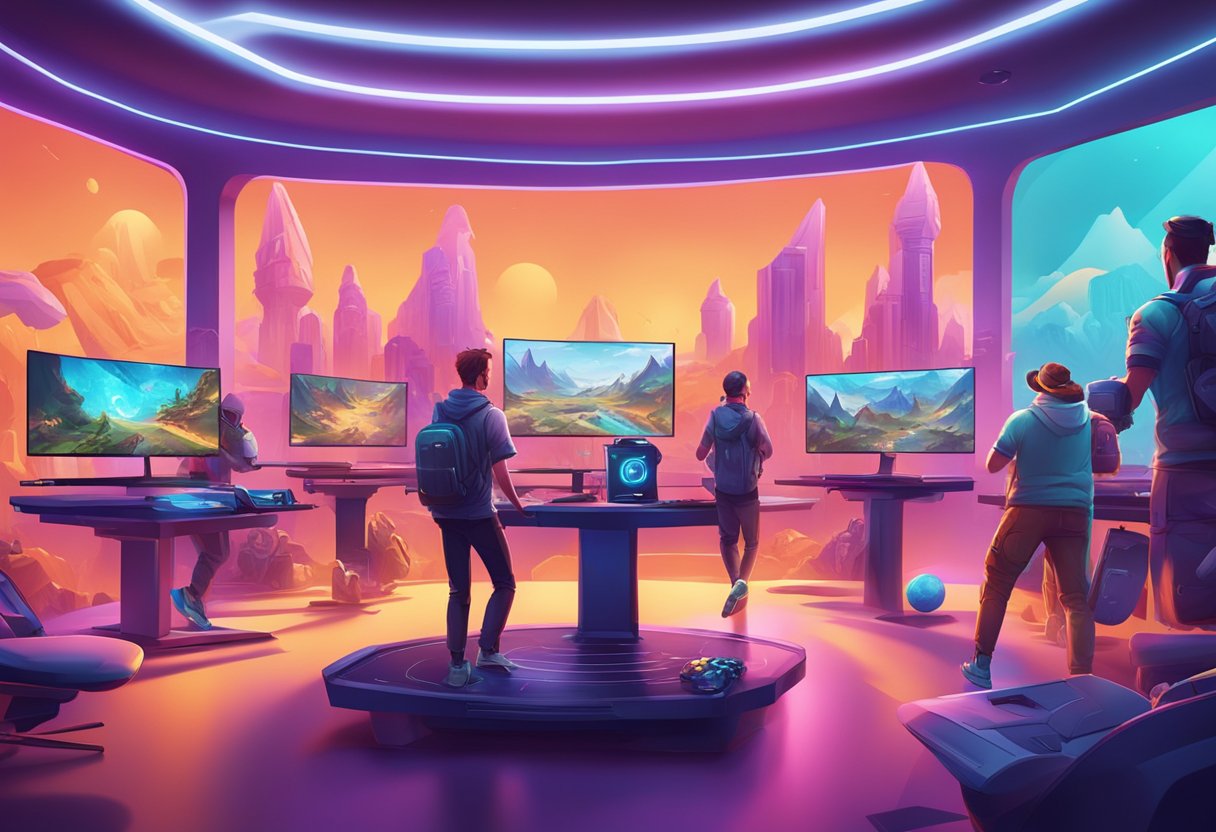
Polygon is establishing itself as a formidable player in the digital gaming arena, with an eye on incorporating blockchain technology in a user-friendly manner. The platform has shown commendable growth, particularly in aligning itself with current trends in gaming, such as NFTs and play-to-earn models.
At the core of Polygon’s offering is a gaming ecosystem that’s built to leverage the benefits of blockchain. This includes decentralized finance (DeFi) elements transitioning into GameFi, where gaming meets finance to create a new method of engaging with games and in-game assets. The innovation lies in blending entertainment with potential earnings, where players can earn rewards that have real-world value.
One notable convenience for users is the ability to purchase NFTs using traditional payment methods. NFTpay stands out for facilitating NFT transactions on the Polygon blockchain through an intuitive gateway, welcoming both credit and debit cards. This eases the entry barrier for individuals less familiar with cryptocurrency transactions, opening the doors to a wider audience.
The platform has also seen a surge in new games built on Polygon, signifying a dynamic and growing community of developers and players. The integration with NFTs is more than just a transactional tool; it is an ecosystem where digital ownership and gaming experiences blend seamlessly.
Polygon’s growth trajectory suggests a focus on these key areas:
- Expanding access to NFTs via common payment systems
- Forging a robust community around blockchain-based games
- Incorporating financial elements into gaming for a dual benefit of entertainment and earnings
Polygon’s Founders
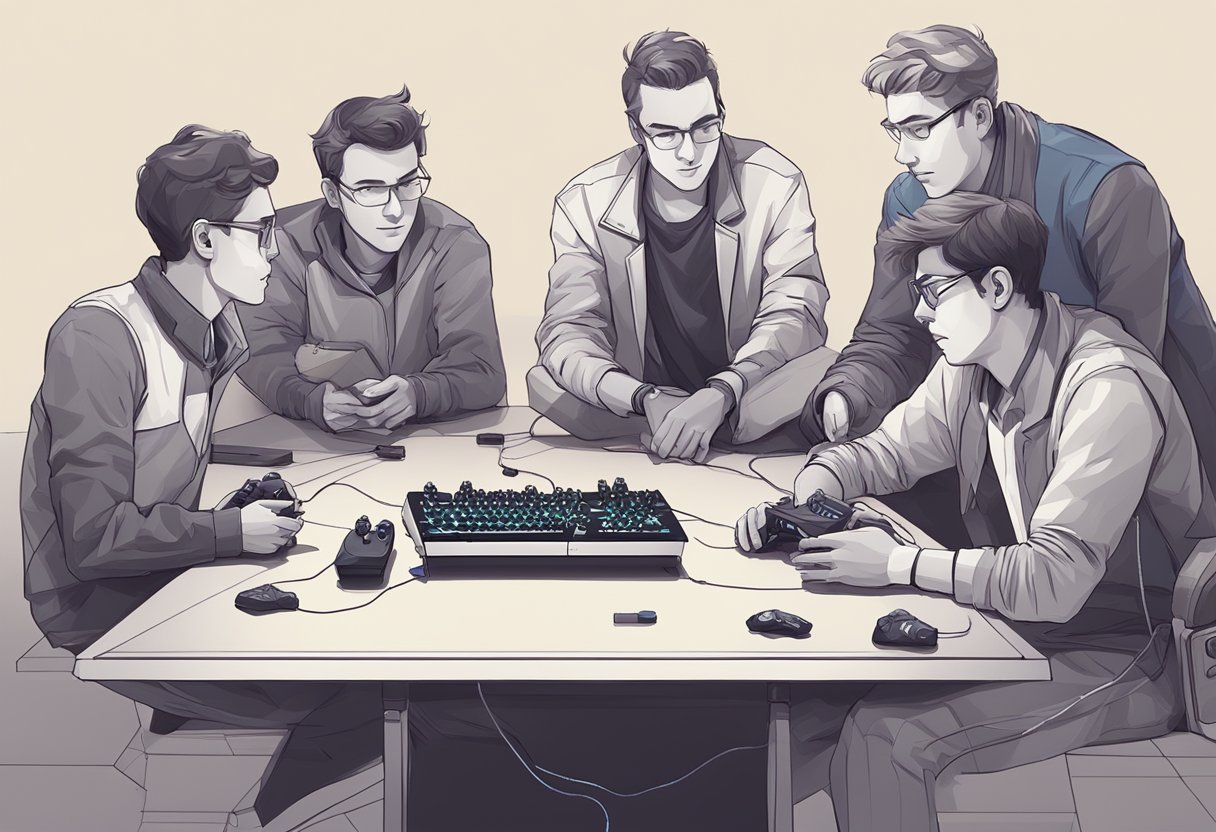
Polygon, widely regarded for its scaling solutions and blockchain infrastructure, was co-founded by a visionary team with a passion for blockchain technology and innovation.
Jaynti Kanani serves as the CEO. He is an engineer by trade with a background in data science. Before his work at Polygon, he played an integral role in implementing the Plasma and the WalletConnect protocol on Ethereum.
Sandeep Nailwal is the Chief Operating Officer (COO) and a blockchain programmer. His expertise includes high-level strategy, leading operations, and guiding the business development at Polygon. Sandeep’s foresight has been substantial in driving the platform towards mass adoption, emphasizing especially on Web3 gaming.
Anurag Arjun is a product manager with a strong foundation in technology. His role at Polygon encompasses overseeing product development and contributing to the platform’s long-term vision.
Lastly, Mihailo Bjelic brings his expertise as a software engineer to complete the team. His focus on decentralization technologies and smart contracts helps in enhancing the platform’s core infrastructure.
The founders’ collective effort and individual strengths have solidified Polygon’s position as a significant player in blockchain technology. Their goal is not only to innovate within the space but also to push towards a more accessible and scalable blockchain environment.
Cryptocurrencies Role in Polygon Gaming
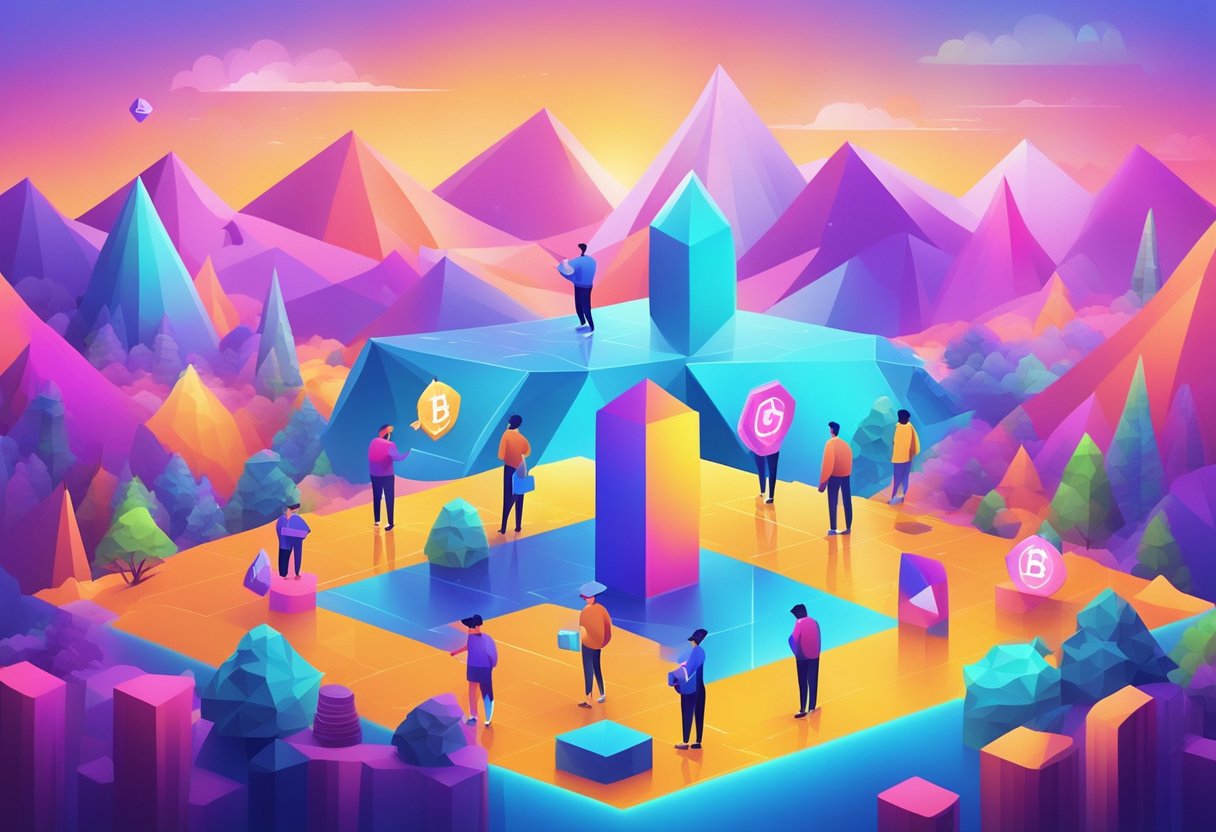
Cryptocurrencies have become an integral part of the gaming industry on the blockchain, and their role within Polygon gaming is multifaceted. As a leading platform in the crypto gaming space, Polygon leverages the inherent benefits of cryptocurrency transactions—speed, security, and reduced costs—to provide an enhanced gaming experience.
- Transaction Speed: Cryptocurrencies allow for fast transactions that are essential for real-time gaming experiences. Polygon’s network, known for its low-latency processing, takes advantage of this feature to ensure that gamers can perform quick in-game transactions without disruptive lags.
- Reduced Costs: The lower transaction fees associated with cryptocurrencies, particularly in the context of Polygon’s infrastructure, make it easier for gamers to engage in microtransactions. This affordability encourages wider participation in the gaming ecosystem.
- Security and Ownership: Utilizing cryptocurrencies, Polygon offers a secure environment for transactions. Gamers have verified ownership of in-game assets, which they can trade or sell with confidence and transparency.
- Interoperability: The integration of multiple tokens and digital assets within Polygon gaming platforms underscores the network’s commitment to an interoperable gaming ecosystem. Players can use a variety of cryptocurrencies to interact across different games and platforms.
Polygon’s gaming network continues to grow, and cryptocurrencies play a crucial role in not only operationalizing the network but also in providing gamers with access to an expansive Web3 gaming ecosystem. This relationship between crypto and gaming spells out a future where digital currencies are central to the gaming experience.
Frequently Asked Questions
Polygon has emerged as a significant player in the blockchain gaming space. It provides a scaling solution for Ethereum networks and has fostered Polygon Studios, dedicated to advancing the blockchain gaming and NFT ecosystem.
What is Polygon in the context of gaming?
Polygon is a platform that enables blockchain networks to connect and scale, creating a more versatile environment for gaming developers. It supports the development of decentralized gaming experiences, which are becoming increasingly popular in the industry.
How does Polygon benefit gamers and developers?
For developers, Polygon offers a means to create and deploy games with lower transaction fees and faster speeds than on the main Ethereum blockchain. Gamers benefit from these efficiencies through smoother gameplay and more affordable in-game transactions.
Are there any popular games built on Polygon?
Yes, various games and digital collectible platforms leverage Polygon’s technology. These include decentralized games and NFT marketplaces.
Does Polygon only work with gaming?
No, Polygon’s technology is also utilized in many different applications within DeFi and other Web3 initiatives. However, its role in creating a sustainable gaming ecosystem underscores the platform’s commitment to the gaming industry.







